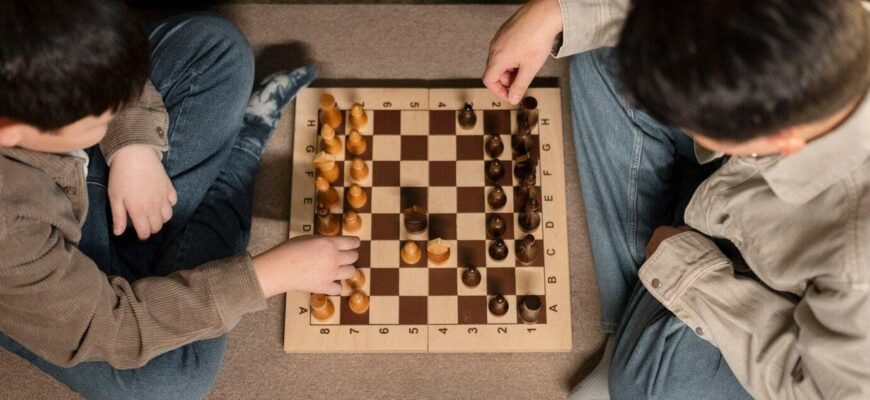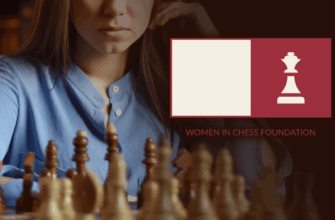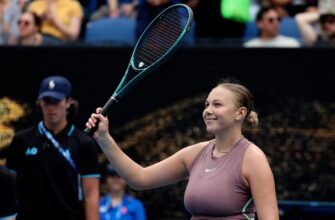In an educational landscape perpetually seeking innovative tools to engage young minds, one ancient game is proving to be a surprisingly potent ally: chess. Far from being merely a pastime for grandmasters and their devoted disciples, the strategic depths of the 64 squares are increasingly recognized as a dynamic platform for fostering crucial cognitive skills. This recognition culminates in an upcoming event set to transform how educators perceive and utilize this timeless game.
A Strategic Move for Education: The London Masterclasses
Mark your calendars for October 11-12, when London`s Mindsports Centre will host a pivotal weekend dedicated to exploring chess as a powerful educational instrument. Organized in collaboration with the FIDE Chess in Education Commission and the ECU Education Commission, this event is not just another conference; it`s a deep dive into practical, classroom-ready strategies. Supported by the global authority of FIDE and the International Olympic Committee, its significance is underscored by a shared vision for educational excellence through unconventional means.
For those still clinging to the notion that chess is too complex for the average student – or indeed, the average teacher – this masterclass series offers a compelling counter-narrative. The organizers emphatically state: no prior chess experience is required. What *is* required, however, is a genuine passion for guiding children`s learning and growth, a curiosity to discover fresh pedagogical approaches, and perhaps a slight fondness for the quiet intellectual battle that unfolds on the chessboard.
Unlocking Potential: More Than Just Moves
The core philosophy behind these masterclasses is simple yet profound: chess isn`t just about winning; it`s about learning how to think, how to plan, and how to adapt. Participants will gain hands-on tools and insights that can be immediately applied in the classroom, transforming abstract concepts into engaging, tangible experiences. Imagine students developing:
- Critical Thinking: Evaluating possibilities, anticipating consequences.
- Problem-Solving: Navigating complex scenarios, devising creative solutions.
- Decision-Making: Weighing options under pressure, committing to a path.
- Focus and Concentration: Sustaining attention over extended periods.
- Resilience: Learning from mistakes, adapting strategies.
Beyond the direct academic benefits, chess cultivates invaluable lifelong skills that extend far beyond the classroom, shaping more thoughtful and strategically minded individuals.
Meet the Visionaries: Architects of Educational Chess
The caliber of presenters assembled for this event speaks volumes about the depth of expertise involved. A roster of distinguished educators, grandmasters, and specialists from around the globe will lead interactive workshops, sharing their research-backed methodologies and practical wisdom:
- Jerry Nash, Chairman of FIDE`s Chess in Education Commission, will guide attendees through “Chess for Critical Thinking Development,” demonstrating how the game builds Higher Order Thinking (HOT) skills.
- Rita Atkins, Secretary of FIDE`s Chess in Education Commission, with a background in mathematics and physics, will delve into “Problems on the Chessboard for Gifted and Talented Students,” tapping into chess`s unique ability to challenge bright minds.
- Anzel Laubscher, a FIDE Senior Lead Instructor and Woman International Master, will bridge the gap from classroom lessons to community engagement with “From Classroom Chess to Chess Club the Educational Way.”
- Alla Khachatryan, Senior Course Administrator for FIDE EDU, will impart essential techniques for “How to Teach Chess Basics Effectively in the Classroom,” ensuring every educator feels confident introducing the game.
- John Foley, Director of ChessPlus, and Brigitta Peszleg, an experienced chess educator and Secretary of the ECU Education Commission, will collaborate on “Chess and Strategy Games in the Classroom,” broadening the horizon beyond traditional chess.
- Hari Neocleous, a primary maths and chess teacher, will showcase innovative integrations with “Teaching Mathematics through Chess,” revealing how chess can illuminate mathematical principles.
- And finally, Grandmaster Daniel Gormally, a seasoned competitor and author, will share insights on “Optimising Strategies for Chess Minigames,” proving that even smaller, focused activities can yield significant learning outcomes.
These experts, each with a unique perspective, converge to offer a comprehensive look at chess`s multifaceted role in education. Attendees will receive a comprehensive booklet consolidating all masterclass materials, ensuring that the learning extends well beyond the two days in London.
The Future of Learning, 64 Squares at a Time
With only 60 places available, offered on a first-come, first-served basis, this event represents a rare opportunity to engage directly with leaders in the field and integrate the profound benefits of chess into one`s educational practice. It`s an investment not just in professional development, but in the future cognitive abilities of students. While the world debates the latest technological marvels in education, perhaps the most effective tool has been waiting patiently on the board, ready to be rediscovered. The FIDE & ECU Masterclasses are set to demonstrate that every lesson truly counts when it`s delivered with strategy, insight, and a touch of the beautiful game.









